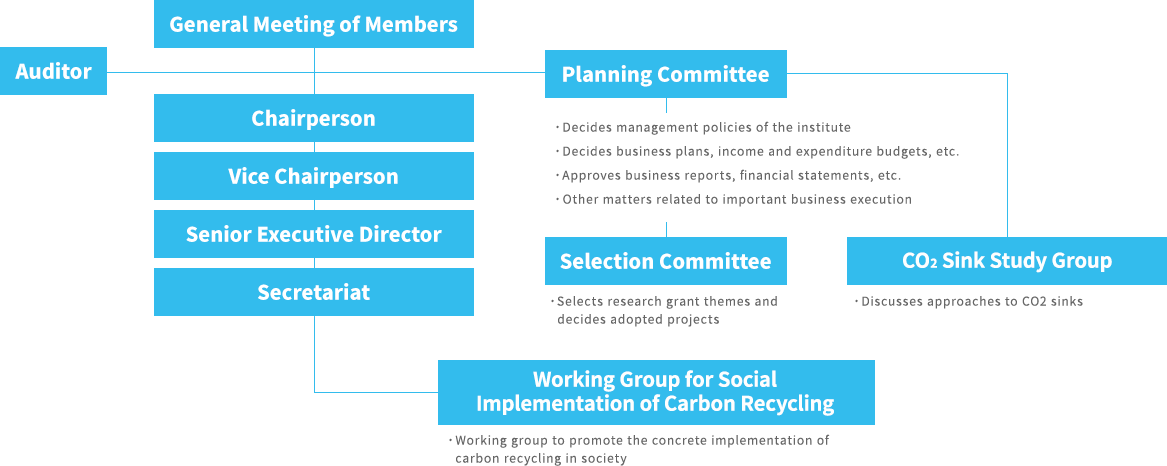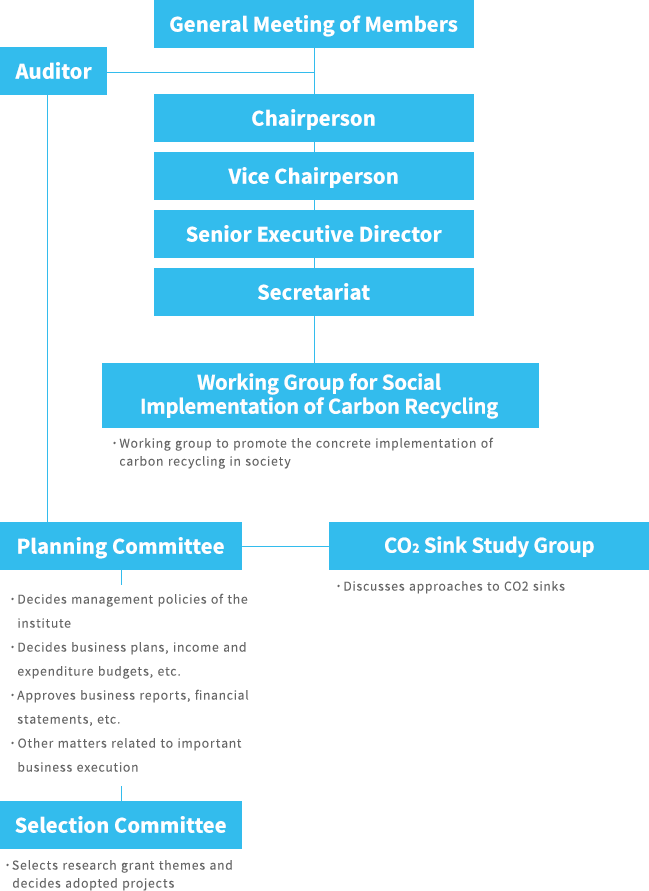The global warming issue differs from regional environmental problems such as NOx and SOx in that it will be crucial to reduce CO2 emissions throughout the world, meaning the issue cannot be resolved solely on the basis of those regulatory measures already in place.
How to improve the energy access, meanwhile, poses another major challenge, with approximately one billion people around the world still unable to achieve the benefits of electricity.
Given this situation, carbon recycling policies that see CO2 as a resource to be used and promote innovation in this field are coming to play an important role in Japan’s energy policies. Rather than seeing CO2 in a negative light as has been the case in recent years, it is also recognized that, in order to achieve the goal of carbon neutrality by 2050, further efforts will be needed that make active use of CO2 as a source of carbon.
Accordingly, the Carbon Recycling Fund Institute was established on August 30, 2019 under a private sector initiative with the aim of both addressing the global warming issue and improving the energy access throughout the world. The new institute will foster innovation in carbon recycling by public relations and sponsoring the research and development in the field.
As the world works to find solutions to global issues, such as developing measures against global warming and maintaining a sustainable procurement of resources and energy, actions to achieve carbon neutrality are accelerating around the globe.
Reaching net zero emissions through a combination of thorough emissions reduction and CCUS (Carbon dioxide Capture, Utilization and Storage) is thought to offer a substantial solution to carbon neutrality. In this context where CO2 has been considered in a negative light, carbon recycling, which instead makes use of CO2 as a useful resource, is gaining increasing importance.

Carbon Recycling Fund Institute Chairperson
Tsugio Mitsuoka
By its original definition, CO2 is a fundamental substance that is necessary for the preservation of the earth’s system. Living beings, including humans, would not be able to exist without CO2. Now is the time to humbly and earnestly learn from and aim for innovations that help us to live in symbiosis with nature.At the Carbon Recycling Fund Institute, as we approach carbon recycling within a wider, global perspective, our goal is to construct a “Sustainable Carbon Society” where carbon compounds containing CO2 are recycled using nature’s powers within a material recycling system involving all parts of the earth, including the atmosphere, land and sea.
I think that the realization of a “Sustainable Carbon Society” is the most suitable solution, not only for Japan which relies on imports for a large part of its resources and energy needs, but also for building a sustainable social and economic system for the entire world.
Together with our members, we will generate concrete regional projects and engage in further international collaboration as we deepen cooperation with different countries and participating organizations.
【Executives】
【Advisers】
【Membership categories】
(annual membership fee)
【Activities】
A number of obstacles are blocking the practical viability of carbon recycling, including issues of cost and a lack of fundamental research. The institute intends to offer grants to researchers who are taking on these challenges or who have achieved success in this field.
Along with publishing its own website and a variety of other material to provide the latest information on carbon recycling in Japan and elsewhere, the institute will also promote the field through activities such as events hosted in collaboration with media organizations.
To expand the utilization aspects of the CO2 value chain, the institute supports the creation of an environment that promotes corporate efforts to expand CO2 sinks by organizing the issues and collecting necessary data, establishing a study group consisting of experts and companies seeking to explore business in the wood supply chain, as well as conducting activities to spread understanding of CO2 sinks to make them more familiar to the public.
The institute will undertake its own studies to remain conversant with technical and other developments in the field of carbon recycling both in Japan and overseas, as needed for the operation of the grants program.
The institute will offer its recommendations with regard to national policies on energy, the environment, and technology development, and also on the international rule making to facilitate CCUS(CO2 Capture, Utilization and Storage), including carbon recycling.



Trademark registration No.6352536